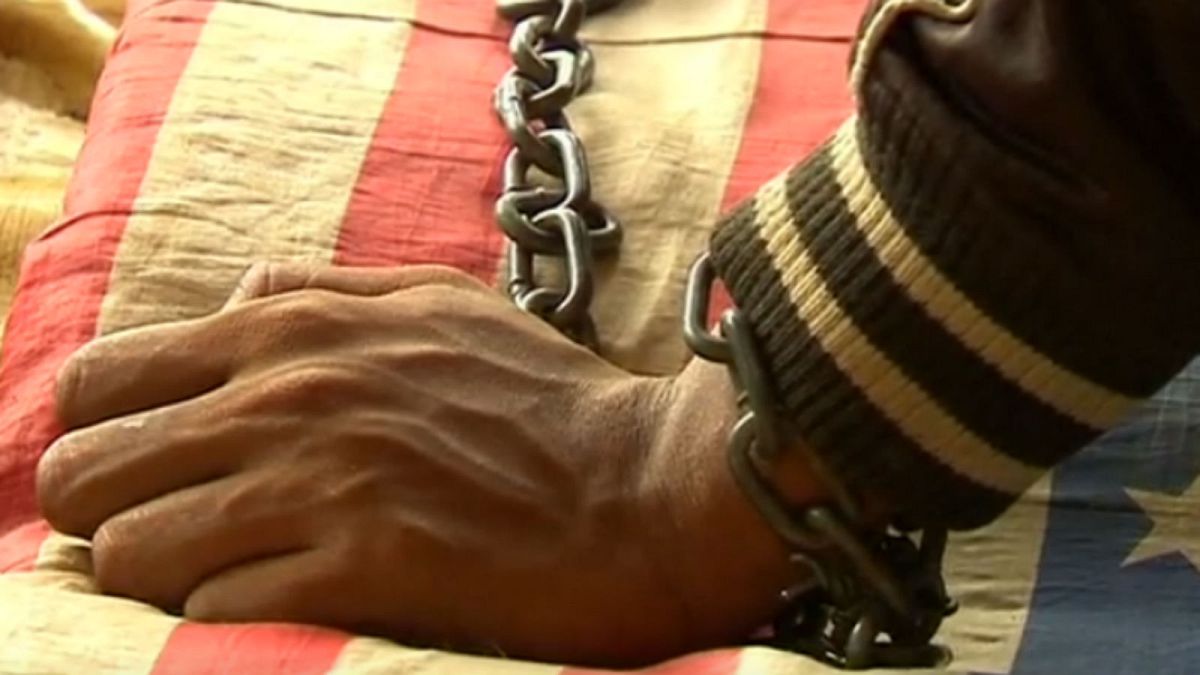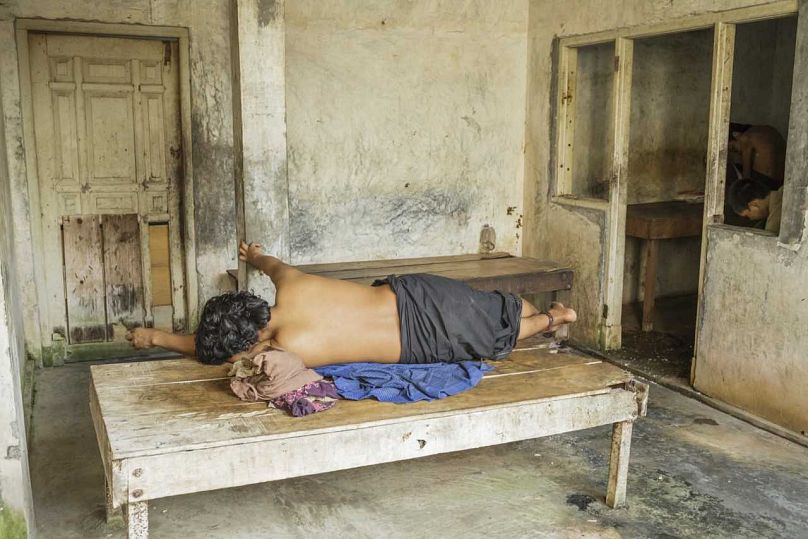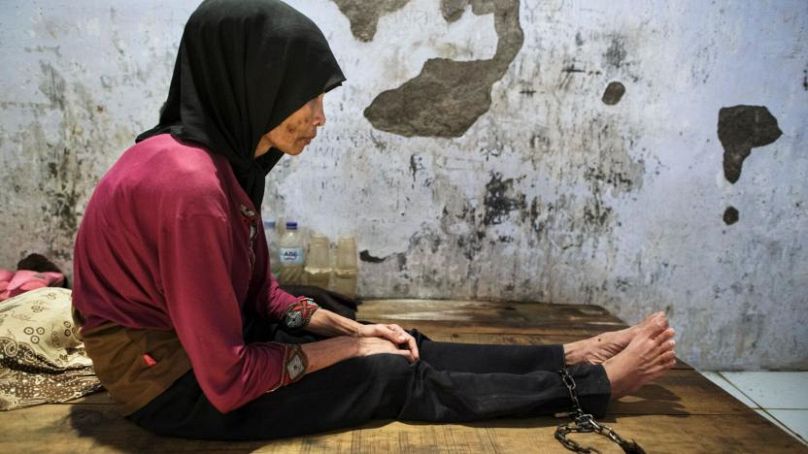On ‘World Mental Health Day,’ Human Rights Watch (HRW) is using the hashtag #BreakTheChains to ramp up awareness for their on-going campaign to end human shackling in Indonesia.
Sodikin spent eight years chained in a tiny shed in his family’s backyard in West Java, Indonesia. Half-naked and unable to stand, Sodikin would eat and defecate in a few metres of space with only a small window to provide him light.
Sodikin’s family had no idea how to support him when he developed a mental health condition that involved intense anger and rage.
His family tried everything, but they felt they had no alternative but to lock him up in that hut. They would pass food through a hole and carry Sodikin out every two months for a bath. The family saw Sodikin as a burden, even waiting for him to die.
Now, at 34-years-old, Sodikin has reintegrated into his community. After spending six months recovering at an NGO shelter, Sodikin goes to work each day and earns money to support his family, and even leads his local call to prayer.
His family burned the hut to the ground where a garden now grows.
Sodikin’s case is fortunate. Human Rights Watch (HRW) estimates that 12,800 people with psychosocial disabilities are still living in shackles or extremely confined spaces in Indonesia, according to their October 2018 report “Indonesia: Shackling reduced, but persists.”
This number has decreased since HRW released a report in 2016 which showed that more than 18,000 people were living in these conditions. Some 57,000 Indonesians say they have been shackled at least once in their lives, according to government data.
Kriti Sharma, senior researcher at HRW's disability rights division, told Euronews Indonesia has taken promising steps to end shackling, also referred to as "pasung", but still needs to adopt a long-term policy of moving people out of institutions and into society.
Many Indonesians end up in overcrowded and unsanitary private institutions. These health centres, known as puskesmas, have almost no government oversight, and little data is known about what goes on inside, or even how many exist in Indonesia. People in the country often cite lack of faith as a cause of poor mental health.
The HRW report documented a woman in her mid-thirties with a psychosocial disability at Yayasan Galuh Rehabilitation Centre in Bekasi, Indonesia, who said she used to be chained at home.
"My family tricked me into coming here,” the woman said, “they told me my mother had passed away and they were taking me to her funeral. Instead they brought me here.”
Sharma told Euronews the most important thing the government can do is conduct regular, unannounced monitoring visits to social care institutions and faith healing centres, with unhindered access to both staff and patients to ensure abuse stops.
She added that while the commitment to end shackling is strong in Jakarta — the Indonesian capital — it has yet to translate into action in outlying areas. Indonesia has the world’s fourth largest population, with over 260 million people spread out over 17,508 islands. These various cultures, levels of education and reporting systems have made it difficult for one singular plan to work in each region.
In 2017, the Ministry of Health rolled out the 'Healthy Indonesia — Family Approach' Program.
As of September 2018, the scheme had reached 16.2 million — roughly 25% — of Indonesian households. The data collected indicates, however, that only 16% of people with psychosocial disabilities had access to mental health services.
“We need to inform people about mental disorders, and teach them how to care for them in the community,” said Dr Fidiansjah, director of Prevention and Controlling for Mental Health and Narcotic for the Ministry of Health of Indonesia.
Fidiansjah told Euronews there are currently 47 mental hospitals containing a total of 10,378 beds that must adhere to quality control standards.
The Ministry of Health also says it has trained around 1,500 doctors and nurses, along with 7,000 medical staff in 34 provinces, and has created a standardised curriculum to treat mental illness in patients.
They add that their their goal is to equip patients with the knowledge and skills needed to rejoin society, to promote healthy living, and to tackle discrimination against people with psychosocial disabilities.














